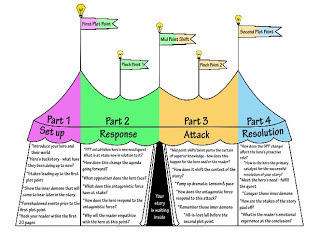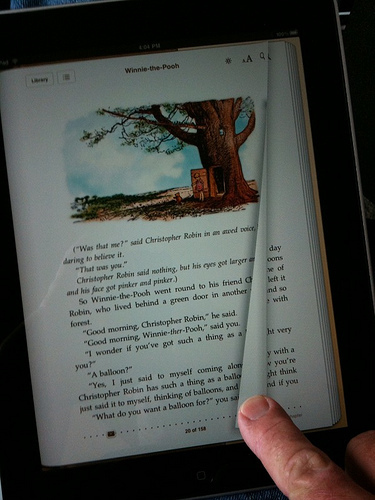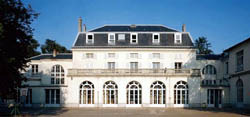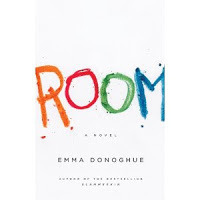Sandra Gulland's Blog, page 39
December 7, 2010
Click, click, click! Where good ideas come from ...
.
.
My son Chet sent me the link to this video on creativity, which pulled lots of thoughts I'm having right now into place.
The importance of connectivity
A post I wrote on a blog about searching for information on the Theatre of the Marais in 17th century Paris was happened upon by John Golder, a scholar in 17th century French theatre. He himself had been surfing the Net for information about the Theatre of the Marais. He read my blog and contacted me through my website. "Can I help?" Magic words!
Since then I've been on a very steep creative and learning curve, thanks to John ... and thanks to this thing called connectivity. Had I not put my questions out there, had I not made myself available, I would not have learned what I'm learning today.
The importance of desperately seeking
Last spring, in Ottawa, at the Writers' Union AGM, I had lunch with novelist Frances Itani. I said: "You know how when you're writing a novel, the answers just fall into your lap?" She knew exactly what I meant. There is something desperately seeking about the process of writing a novel: Seek and ye shall find.
In the early drafts of my novel, my character makes reference, at the end, to the writer Madame de Villedieu. But that was it.
Now, in the midst of my third draft, my character's mother has just joined the Hôtel de Bourgogne, another theatre company, and I needed to know what play this company was about to produce. After some time yesterday I found the name of the play, and after more time more I finally found the author of the tragedy: Madame de Villedieu.
Bonanza!
It could be said that this morning's work researching Villedieu—instead of writing—was a wasted day, but I don't think so. One thing I learned was that Villedieu was not only an originator of historical novels, but that she worked openly, communicating with her readers and the salons of the day...which comes around to the subject of this post: the importance of connectivity. The video mentions 17th century Paris being one of those fertile periods in history for innovation because of the connectivity encouraged in the salons.
Click, click, click!
Madame de Villedieu is apt to only have a walk-on part in the novel I'm writing now, but I'm tucking her away for the future. For a long time, I've been wanting to write a novel about La Grande Mademoiselle, the King's cousin—trying to write, I should say, for I've hundreds of pages in the drawer—but I could never find the right key, the way into her story. It's possible that Villedieu, who dedicated a play and a novel to this eccentric feminist, might just be that key.
*****
Website: http://www.sandragulland.com/
Blog: http://sandragulland.blogspot.com/
Facebook: http://bit.ly/sgullandFacebook
Twitter: http://twitter.com/Sandra_Gulland
Tumblr: http://sandragulland.tumblr.com/

.
My son Chet sent me the link to this video on creativity, which pulled lots of thoughts I'm having right now into place.
The importance of connectivity
A post I wrote on a blog about searching for information on the Theatre of the Marais in 17th century Paris was happened upon by John Golder, a scholar in 17th century French theatre. He himself had been surfing the Net for information about the Theatre of the Marais. He read my blog and contacted me through my website. "Can I help?" Magic words!
Since then I've been on a very steep creative and learning curve, thanks to John ... and thanks to this thing called connectivity. Had I not put my questions out there, had I not made myself available, I would not have learned what I'm learning today.
The importance of desperately seeking
Last spring, in Ottawa, at the Writers' Union AGM, I had lunch with novelist Frances Itani. I said: "You know how when you're writing a novel, the answers just fall into your lap?" She knew exactly what I meant. There is something desperately seeking about the process of writing a novel: Seek and ye shall find.
In the early drafts of my novel, my character makes reference, at the end, to the writer Madame de Villedieu. But that was it.
Now, in the midst of my third draft, my character's mother has just joined the Hôtel de Bourgogne, another theatre company, and I needed to know what play this company was about to produce. After some time yesterday I found the name of the play, and after more time more I finally found the author of the tragedy: Madame de Villedieu.
Bonanza!
It could be said that this morning's work researching Villedieu—instead of writing—was a wasted day, but I don't think so. One thing I learned was that Villedieu was not only an originator of historical novels, but that she worked openly, communicating with her readers and the salons of the day...which comes around to the subject of this post: the importance of connectivity. The video mentions 17th century Paris being one of those fertile periods in history for innovation because of the connectivity encouraged in the salons.
Click, click, click!
Madame de Villedieu is apt to only have a walk-on part in the novel I'm writing now, but I'm tucking her away for the future. For a long time, I've been wanting to write a novel about La Grande Mademoiselle, the King's cousin—trying to write, I should say, for I've hundreds of pages in the drawer—but I could never find the right key, the way into her story. It's possible that Villedieu, who dedicated a play and a novel to this eccentric feminist, might just be that key.
*****
Website: http://www.sandragulland.com/
Blog: http://sandragulland.blogspot.com/
Facebook: http://bit.ly/sgullandFacebook
Twitter: http://twitter.com/Sandra_Gulland
Tumblr: http://sandragulland.tumblr.com/
Published on December 07, 2010 09:18
December 1, 2010
The first step to writing is …
Too true: the first step to writing is reading.
Published on December 01, 2010 11:54
The first step to writing is ...
.
.
Too true: the first step to writing is reading.
*****
Website: http://www.sandragulland.com/
Blog: http://sandragulland.blogspot.com/
Facebook: http://bit.ly/sgullandFacebook
Twitter: http://twitter.com/Sandra_Gulland
Tumblr: http://sandragulland.tumblr.com/
.
Too true: the first step to writing is reading.
*****
Website: http://www.sandragulland.com/
Blog: http://sandragulland.blogspot.com/
Facebook: http://bit.ly/sgullandFacebook
Twitter: http://twitter.com/Sandra_Gulland
Tumblr: http://sandragulland.tumblr.com/
Published on December 01, 2010 07:39
November 14, 2010
Story Structure Circus Tent
.
I've been reading Alexandra Sokoloff and other writers on story structure. There's something not quite right about my draft, and I'm trying to figure out what's amiss. (I suspect it's the Antagonist, who keeps changing.)
In my search, I came across this visual, which I quite like:
 Be sure to click on the blog to read the details. This "beat sheet" from from StoryFix.com helps, as well. The terms are slightly different from those that Sokoloff and others use, but the concept is the same.
Be sure to click on the blog to read the details. This "beat sheet" from from StoryFix.com helps, as well. The terms are slightly different from those that Sokoloff and others use, but the concept is the same.
*****
Website: http://www.sandragulland.com/
Blog: http://sandragulland.blogspot.com/
Facebook: http://bit.ly/sgullandFacebook
Twitter: http://twitter.com/Sandra_Gulland
Tumblr: http://sandragulland.tumblr.com/

I've been reading Alexandra Sokoloff and other writers on story structure. There's something not quite right about my draft, and I'm trying to figure out what's amiss. (I suspect it's the Antagonist, who keeps changing.)
In my search, I came across this visual, which I quite like:
 Be sure to click on the blog to read the details. This "beat sheet" from from StoryFix.com helps, as well. The terms are slightly different from those that Sokoloff and others use, but the concept is the same.
Be sure to click on the blog to read the details. This "beat sheet" from from StoryFix.com helps, as well. The terms are slightly different from those that Sokoloff and others use, but the concept is the same.*****
Website: http://www.sandragulland.com/
Blog: http://sandragulland.blogspot.com/
Facebook: http://bit.ly/sgullandFacebook
Twitter: http://twitter.com/Sandra_Gulland
Tumblr: http://sandragulland.tumblr.com/
Published on November 14, 2010 16:48
Story Structure Circus Tent
I've been reading Alexandra Sokoloff and other writers on story structure. There's something not quite right about my draft, and I'm trying to figure out what's amiss. (I suspect it's the Antagonist, who keeps changing.) In my search, I came across this visual, which I quite like:

Be sure to click on the blog to read the details. This "beat sheet" from from StoryFix.com helps, as well. The terms are slightly different from those that Sokoloff and others use, but the concept is the same.
Published on November 14, 2010 11:51
November 7, 2010
Blogs and Slogs
.
When I'm in writing mode (as opposed to research mode), I get hungry for books and articles on writing. I've lately been reading the blog posts of Alexandra Sokoloff; Screenwriting Tricks for Authors (which I just posted to my Links page above).
Sokoloff has a background in theatre and screenwriting, which gives her a strong feeling for plot and setting. I like her essays: they send sparks flying, which is what it's all about.
A note on reading
I've given up on Franzen's novel Freedom: I find it a slog, lacking heart. Does Franzen care about his characters? I don't think so. The author perspective seems so condescending. I'm disturbed by the raves this novel has received. Is heartlessness in vogue? I'm in agreement with this review in the Globe and Mail.

(photo by mikebaird)
A note on iPad reading
Instapaper allows me to tag interesting blog posts and website finds "read later"—which I can do now in comfort—on my iPad. On my iPad, when I see a passage I like, something I want to remember, I'm able to highlight it and email it to myself as something to follow up on. If it's something to do with research, I can email it to my EverNote database. If it's a quote on writing, I can send it directly to my Tumblr blog.
If it's a PDF I'm reading—an academic article, for example—I still find iAnnotate the best iPad app because I can send highlighted passages (as well as the marked-up article, should I wish) to my EverNote database.
I love Kindle reading for the same reason: my highlights are available on-line (with some fiddling: see "Research Tools" on my research blog). These can then be copied and put into a searchable database.
Could I live without my iPad: I don't think so!
Sandra Gulland
*****
Website: http://www.sandragulland.com/
Blog: http://sandragulland.blogspot.com/
Facebook: http://bit.ly/sgullandFacebook
Twitter: http://twitter.com/Sandra_Gulland
Tumblr: http://sandragulland.tumblr.com/

When I'm in writing mode (as opposed to research mode), I get hungry for books and articles on writing. I've lately been reading the blog posts of Alexandra Sokoloff; Screenwriting Tricks for Authors (which I just posted to my Links page above).
Sokoloff has a background in theatre and screenwriting, which gives her a strong feeling for plot and setting. I like her essays: they send sparks flying, which is what it's all about.
A note on reading
I've given up on Franzen's novel Freedom: I find it a slog, lacking heart. Does Franzen care about his characters? I don't think so. The author perspective seems so condescending. I'm disturbed by the raves this novel has received. Is heartlessness in vogue? I'm in agreement with this review in the Globe and Mail.

(photo by mikebaird)
A note on iPad reading
Instapaper allows me to tag interesting blog posts and website finds "read later"—which I can do now in comfort—on my iPad. On my iPad, when I see a passage I like, something I want to remember, I'm able to highlight it and email it to myself as something to follow up on. If it's something to do with research, I can email it to my EverNote database. If it's a quote on writing, I can send it directly to my Tumblr blog.
If it's a PDF I'm reading—an academic article, for example—I still find iAnnotate the best iPad app because I can send highlighted passages (as well as the marked-up article, should I wish) to my EverNote database.
I love Kindle reading for the same reason: my highlights are available on-line (with some fiddling: see "Research Tools" on my research blog). These can then be copied and put into a searchable database.
Could I live without my iPad: I don't think so!
Sandra Gulland
*****
Website: http://www.sandragulland.com/
Blog: http://sandragulland.blogspot.com/
Facebook: http://bit.ly/sgullandFacebook
Twitter: http://twitter.com/Sandra_Gulland
Tumblr: http://sandragulland.tumblr.com/
Published on November 07, 2010 06:21
November 6, 2010
Warning: a big change coming
.
.
I'm in the process of having all of my website and blogs changed over from Blogger to WordPress. I've been frustrated by Blogger for too long. The formatting can be so ungainly and uncontrollable!
But the main reason to change is that under WordPress, my entire website will be under my control: I won't have to hire a Net Guru to change a comma, for example.
That said, there are bound to be glitches and frustrations ahead, so please bear with me!
.
I'm in the process of having all of my website and blogs changed over from Blogger to WordPress. I've been frustrated by Blogger for too long. The formatting can be so ungainly and uncontrollable!
But the main reason to change is that under WordPress, my entire website will be under my control: I won't have to hire a Net Guru to change a comma, for example.
That said, there are bound to be glitches and frustrations ahead, so please bear with me!
Published on November 06, 2010 06:39
November 4, 2010
Cheers for the Josephine B. Team
.
.
I'm in that anxious holding pattern now, waiting for The Taskmaster's feedback. (Of course I always assume that he's unhappy with the work.) Not that there isn't a great deal to do:

On learning about Google Lit Trips, I threw out the idea of a Josephine B. Lit Trip to my readers on my Facebook page, and a number of them jumped at the challenge. They would do it! With the help of Jerome Burg, creator of Google Lit Trips, they put together the initial draft of a Lit Trip for The Many Lives & Secret Sorrows of Josephine B. It's likely that this is the first time Facebook fans have taken on a collaborative project like this, which I find thrilling.
However, The Taskmaster has been working me so hard, I'd not had a chance to give their work a close look...until now. And it's awesome! (Cheers for the Josephine B. team!)
It's also a little daunting because in some cases I need to try to find specific locations: where Josephine (then Rose) lived when she first came to Paris; the location of her aunt's county home; the church she was first married in. I have notes on my computer—from over 15 years ago!—but they are sketchy. However, in the time since the first Josephine B. was published in 1995, internet research has exploded. I'm amazed by what I'm able to discover now.
For one thing: I learned today that Josephine lived not far from where we stayed last spring in Paris, not far from where my current heroine lived. I had a general idea before, but Net research makes it possible to find out rather quickly the history of her street, its many transformations over time. Net research allows me to find out the exact address of Aunt Désirée's country home in Noisy-le-Grand, which, I confess, is grander than I'd imagined.

It all makes me just a bit dizzy!
*****
Website: http://www.sandragulland.com/
Blog: http://sandragulland.blogspot.com/
Facebook: http://bit.ly/sgullandFacebook
Twitter: http://twitter.com/Sandra_Gulland
Tumblr: http://sandragulland.tumblr.com/

.
I'm in that anxious holding pattern now, waiting for The Taskmaster's feedback. (Of course I always assume that he's unhappy with the work.) Not that there isn't a great deal to do:
Research, research, research.
Gather and organize my scattered revision notes.
Get back to the Google Lit Trip project for The Many Lives & Secret Sorrows of Josephine B.This last, the Google Lit Trip, is both exciting and exhausting. Google Lit Trips are an exciting educational tool: they allow students to geographically follow the course of a novel they are reading, as well as to explore, on-line, subjects that come up. For example, there's one for The Kite Runner:

On learning about Google Lit Trips, I threw out the idea of a Josephine B. Lit Trip to my readers on my Facebook page, and a number of them jumped at the challenge. They would do it! With the help of Jerome Burg, creator of Google Lit Trips, they put together the initial draft of a Lit Trip for The Many Lives & Secret Sorrows of Josephine B. It's likely that this is the first time Facebook fans have taken on a collaborative project like this, which I find thrilling.
However, The Taskmaster has been working me so hard, I'd not had a chance to give their work a close look...until now. And it's awesome! (Cheers for the Josephine B. team!)
It's also a little daunting because in some cases I need to try to find specific locations: where Josephine (then Rose) lived when she first came to Paris; the location of her aunt's county home; the church she was first married in. I have notes on my computer—from over 15 years ago!—but they are sketchy. However, in the time since the first Josephine B. was published in 1995, internet research has exploded. I'm amazed by what I'm able to discover now.
For one thing: I learned today that Josephine lived not far from where we stayed last spring in Paris, not far from where my current heroine lived. I had a general idea before, but Net research makes it possible to find out rather quickly the history of her street, its many transformations over time. Net research allows me to find out the exact address of Aunt Désirée's country home in Noisy-le-Grand, which, I confess, is grander than I'd imagined.

It all makes me just a bit dizzy!
*****
Website: http://www.sandragulland.com/
Blog: http://sandragulland.blogspot.com/
Facebook: http://bit.ly/sgullandFacebook
Twitter: http://twitter.com/Sandra_Gulland
Tumblr: http://sandragulland.tumblr.com/
Published on November 04, 2010 12:53
November 3, 2010
Novel hypnosis
.
.
 I finished reading
Room
by Emma Donoghue last night. I can't recall a reading experience so intense: I didn't move—literally—for two and a half hours, not until I'd come to the end. And then I stumbled around for a bit, stunned.
I finished reading
Room
by Emma Donoghue last night. I can't recall a reading experience so intense: I didn't move—literally—for two and a half hours, not until I'd come to the end. And then I stumbled around for a bit, stunned.
The novel is told from the point-of-view of a five-year-old. I've read in an interview that Emma Donoghue studied the language patterns of her own five-year-old child to create the voice for this story. She profoundly succeeds, but what is her true accomplishment, in my view, is her ability to see (or appear to see) from the point-of-view of a child—a child born and raised in captivity.
Room has garnered a bouquet of raves from fine writers, such as this one from Michael Cunningham, author of The Hours:
As a writer, it reinforced, for me, the importance of the imagination, of imaginative penetration into the world of ones characters. The first enchantment must be the author's own.
*****
Website: http://www.sandragulland.com/
Blog: http://sandragulland.blogspot.com/
Facebook: http://bit.ly/sgullandFacebook
Twitter: http://twitter.com/Sandra_Gulland
Tumblr: http://sandragulland.tumblr.com/

.
 I finished reading
Room
by Emma Donoghue last night. I can't recall a reading experience so intense: I didn't move—literally—for two and a half hours, not until I'd come to the end. And then I stumbled around for a bit, stunned.
I finished reading
Room
by Emma Donoghue last night. I can't recall a reading experience so intense: I didn't move—literally—for two and a half hours, not until I'd come to the end. And then I stumbled around for a bit, stunned.The novel is told from the point-of-view of a five-year-old. I've read in an interview that Emma Donoghue studied the language patterns of her own five-year-old child to create the voice for this story. She profoundly succeeds, but what is her true accomplishment, in my view, is her ability to see (or appear to see) from the point-of-view of a child—a child born and raised in captivity.
Room has garnered a bouquet of raves from fine writers, such as this one from Michael Cunningham, author of The Hours:
"Room is that rarest of entities, an entirely original work of art. I mean it as the highest possible praise when I tell you that I can't compare it to any other book. Suffice to say that it's potent, darkly beautiful, and revelatory."I agree. It is also charming, as well as enchanting.
As a writer, it reinforced, for me, the importance of the imagination, of imaginative penetration into the world of ones characters. The first enchantment must be the author's own.
*****
Website: http://www.sandragulland.com/
Blog: http://sandragulland.blogspot.com/
Facebook: http://bit.ly/sgullandFacebook
Twitter: http://twitter.com/Sandra_Gulland
Tumblr: http://sandragulland.tumblr.com/
Published on November 03, 2010 07:07
October 31, 2010
Dress up as a book for Halloween
.
.
This quote from L.A. Times blog last year:

.
This quote from L.A. Times blog last year:
Interviewer: Your book "The Handmaid's Tale" has become a seminal feminist work taught in universities all over.
Atwood: You know you've really made it when people start dressing up like that on Halloween.I think a "You know you've really made it when..." blog might be amusing.
Published on October 31, 2010 07:53



